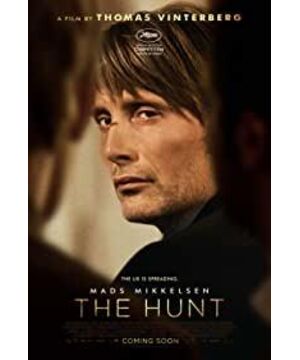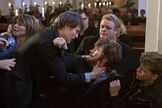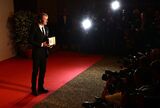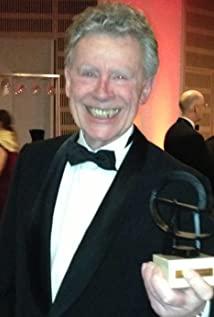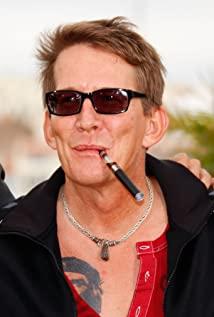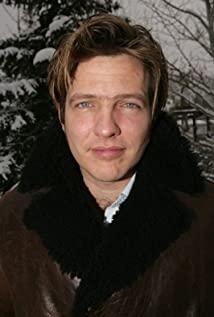From working as a kindergarten janitor to being unjustly dismissed and investigating bullying, Lucas has always treated others with kindness and tolerance. Even when he was the most aggrieved and angry, he just pushed his girlfriend who didn't believe him out the door, gave him one blow (only one blow) to the supermarket employee who hit him first, and threw his bible in the church on Christmas Eve. Theo yelled at him in the face and punched him twice (while Theo didn't fight back).
Kindergarten worker Grethe did not ignore or cover up when little girl Klara said she might have been sexually assaulted. Although the process of her taking measures is problematic, her conclusions are arbitrary, and it has caused the consequences in the film, it does not mean that her attitude of taking measures and taking measures is itself wrong.
Klara's father, Theo, who is a close friend of Lucas's, remains ruthless in anger after being told that his daughter was sexually assaulted at school. He doesn't feel ashamed to blame his daughter, and he doesn't get mad at Lucas; in Lucas' son Marcus When scolding Klara and spitting at her, Theo just kicked him out and stopped the scuffle between the big friend and Marcus; when Klara told the truth, Theo didn't cover up the truth for face, but repented and apologized to his friend at the earliest.
The police investigated Lucas for allegedly sexually abusing children, following judicial procedures and the principles of evidence, and was not influenced by the public opinion of the town residents, nor did they "heavily, quickly and severely" sentence such cases because of the "bad nature".
Lucas' son Marcus, Marcus' godfather Bruun, and Bruun's family and friends have always believed in Lucas and supported him. If a person is wronged and isolated by everyone, including close relatives and friends, it will be even more desperate.
Nordic society is really different.
When Lucas and his son were cooking and chatting at home, the windows were smashed with stones, and the body of his dog Fanny was thrown at the door of the house, I doubted that he would take revenge (it seems that everyone in the town has shotguns).
When Lucas went to the supermarket to buy something, he was rejected, beaten by the clerk and thrown out the door, his head was broken, he only bought what he needed with the sympathy of the supermarket manager, and walked home lamely under the pity of the Klara family. , I think the actor Mads Mikkelsen is not as comfortable as Hannibal as the cannibal doctor.
Lucas didn't get revenge.
He was right, my emotions were wrong.
When Marcus was beaten by a big man and his dog Fanny was killed, I made up my mind that father and son washed the town with blood for a tooth (of course Lucas is not Rambo or Hannibal, they can't go that far).
When Theo clears up the misunderstanding and settles with Lucas, who once again hugs Klara across the room, I imagine being seen suddenly, misunderstandings and suspicions anew.
When Lucas finally stood in the forest for deer hunting, I felt that his standing position was clearly a target in the picture at the moment, and he would be shot in the head next. The intimidating man turned and ran away.
The director and screenwriter are far less dark than I imagined.
Misunderstandings are easy, truth and trust are hard.
It's easy to magnify anger and hatred, but hard to be rational and forgiving.
It is easy for a reputation to be damaged, but it is very difficult to repair it.
The film shows how, in a fully rule of law society, the emotions and morals of groups respond to and recover from the stress of a wrong event (rather than magnify the wrong into an irreversible tragedy, and then cover up forgetting), but also a reflection on the possible weaknesses of human nature (rather than being inexplicably forbidden to reflect).
This is a heartwarming movie. The rigor and coldness in the film is the price of making mistakes and learning (Lucas has taken on too much, so we give him the highest respect).
After watching the film, I can't help but think, how should we deal with situations like children suspected of being sexually abused or someone suspected of abusing children? (Imagine yourself as Lucas or Grethe respectively)
I don't know what procedures the school and the judiciary take in this situation and how to identify the evidence, but as in the film, let a male school worker ask the little girl if she has been sexually assaulted, and the conclusion is based on the little girl's slight nod. Based on this, it must be problematic to ask other children questions that may be inducing, and to rush to disclose the school's conclusions to all parents.
Children are neither angels nor demons, and they make mistakes (and learn from them) just like adults. Children's physiology and psychology are immature and need attention and protection, but adults are not necessarily immune to harm from children.
The complexity of the world is far beyond the ability of human beings - whether children or adults - to know. No individual can accurately predict the evolution of events, discover the truth of the facts without error, and ensure that their judgments and actions will never be wrong. , therefore, scientific procedures are the only guarantee that people can rely on. From the laws of society to the emergency procedures of an organization, systems need to be used to protect human nature. Protect children and protect adults.
View more about The Hunt reviews


